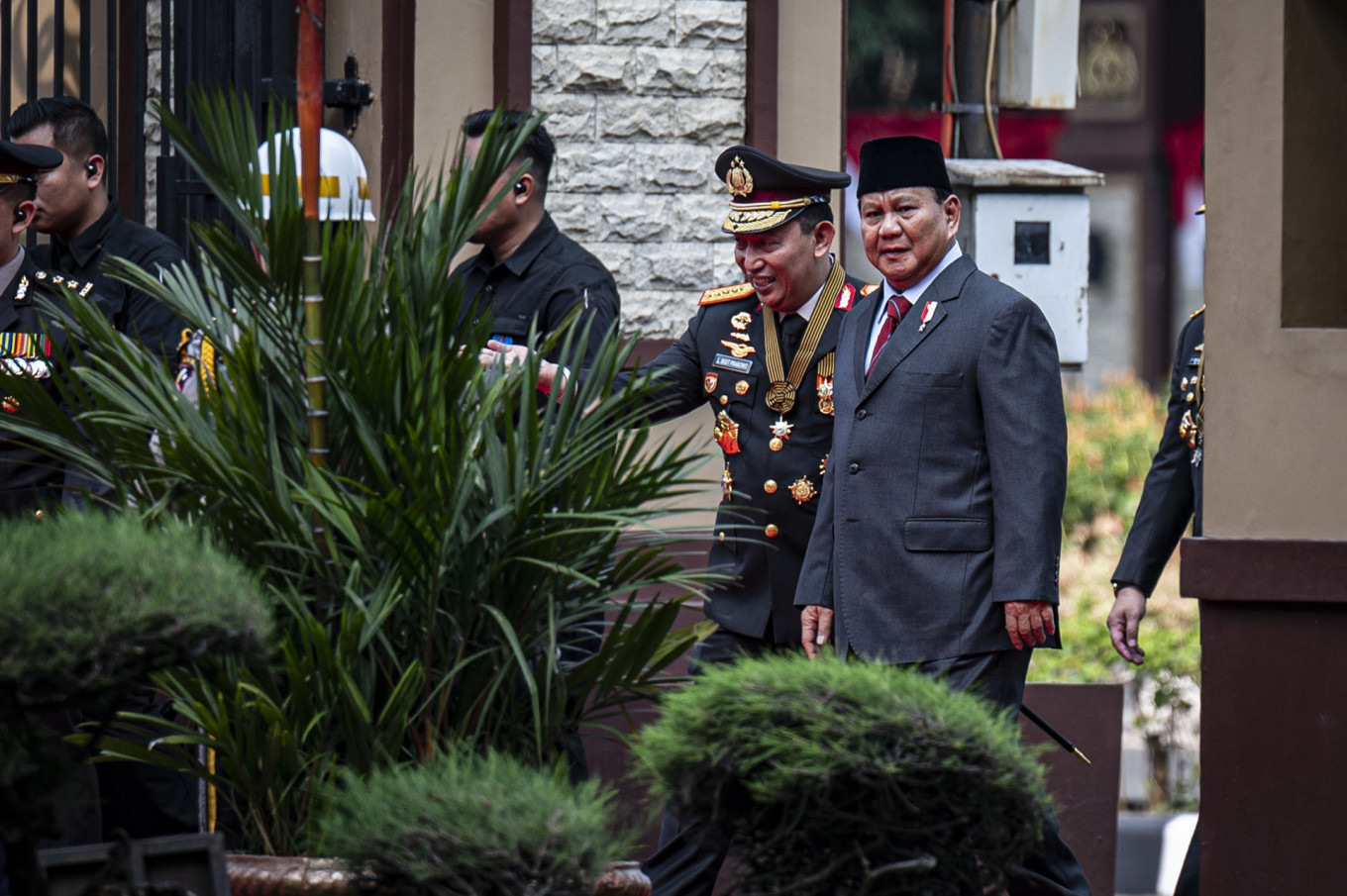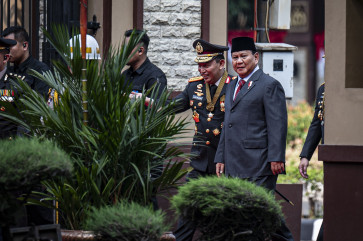Popular Reads
Top Results
Can't find what you're looking for?
View all search resultsPopular Reads
Top Results
Can't find what you're looking for?
View all search resultsIndonesia’s next president: From a republic back into an empire?
Drawing an analogy with Star Wars lore, it remains to be seen if Indonesia's hard-won democracy will revert to authoritarian rule a la Soeharto during the regime of the incoming president.
Change text size
Gift Premium Articles
to Anyone
 National Police chief Gen. Listyo Sigit Prabowo (second right) gestures as he welcomes Defense Minister Prabowo Subianto on June 20, 2024 to the closed-door ceremony for Bintang Bhayangkara Utama, the top police award for meritorious service, at the National Police Headquarters in Jakarta. (Antara/Aprillio Akbar)
National Police chief Gen. Listyo Sigit Prabowo (second right) gestures as he welcomes Defense Minister Prabowo Subianto on June 20, 2024 to the closed-door ceremony for Bintang Bhayangkara Utama, the top police award for meritorious service, at the National Police Headquarters in Jakarta. (Antara/Aprillio Akbar)
T
his year’s presidential election can be argued to be Indonesia’s most controversial yet least interesting during the country’s democratic era. Prior to Joko “Jokowi” Widodo coming on the scene, the country’s political elite was filled with typical faces and oligarchs from the past.
When Jokowi catapulted onto the stage of national politics in 2014, Indonesia’s flourishing democracy seemed to be invigorated by the addition of an ideal politician to cement its many progresses. Seen as a young and capable leader who had risen to the top by the merit of his own achievements and capabilities, the Time Magazine cover dubbing Jokowi as “New Hope” was no exaggeration at the time.
Unfortunately, as the old adage goes, sometimes reality imitates fiction and not the other way around. The term “new hope” alluding to Star Wars lore was ironically like a prophecy misread by the audience. Instead of embodying the protagonist Luke Skywalker, Jokowi was in fact Anakin Skywalker, the main antagonist initially thought to be a powerful figure who would bring balance to the universe.
Jokowi’s rise to the presidency was indeed a very significant political development for Indonesia. Prior to his accession, there always seemed to be a factor impeding the quality of governance in Indonesia, no matter how solid its democracy was. The political landscape was monopolized by members of the oligarchic elite, who began to form a cartel-like government immediately after the reform movement succeeded.
Abdurrahman “Gus Dur” Wahid’s election as president, his subsequent impeachment and then his replacement by Megawati Soekarnoputri was a testament to the blue-blooded elite’s cartel operation and grip of Indonesian politics.
When direct elections were introduced in 2004, the election of Susilo Bambang Yudhoyono (SBY) to the presidency and his governance style attested to and cemented this cartelized form of Indonesian democracy: a vibrant democracy, yet the country’s wealth and resources would be shared mainly among the connected few among the political and business elite.
A figure typical of feudalistic culture, SBY as a Javanese general was one with whom the elite felt most comfortable. His credentials gave the masses an impression of a strong leader, yet one compliant enough to play the power- and resource-sharing game with other top players.


















